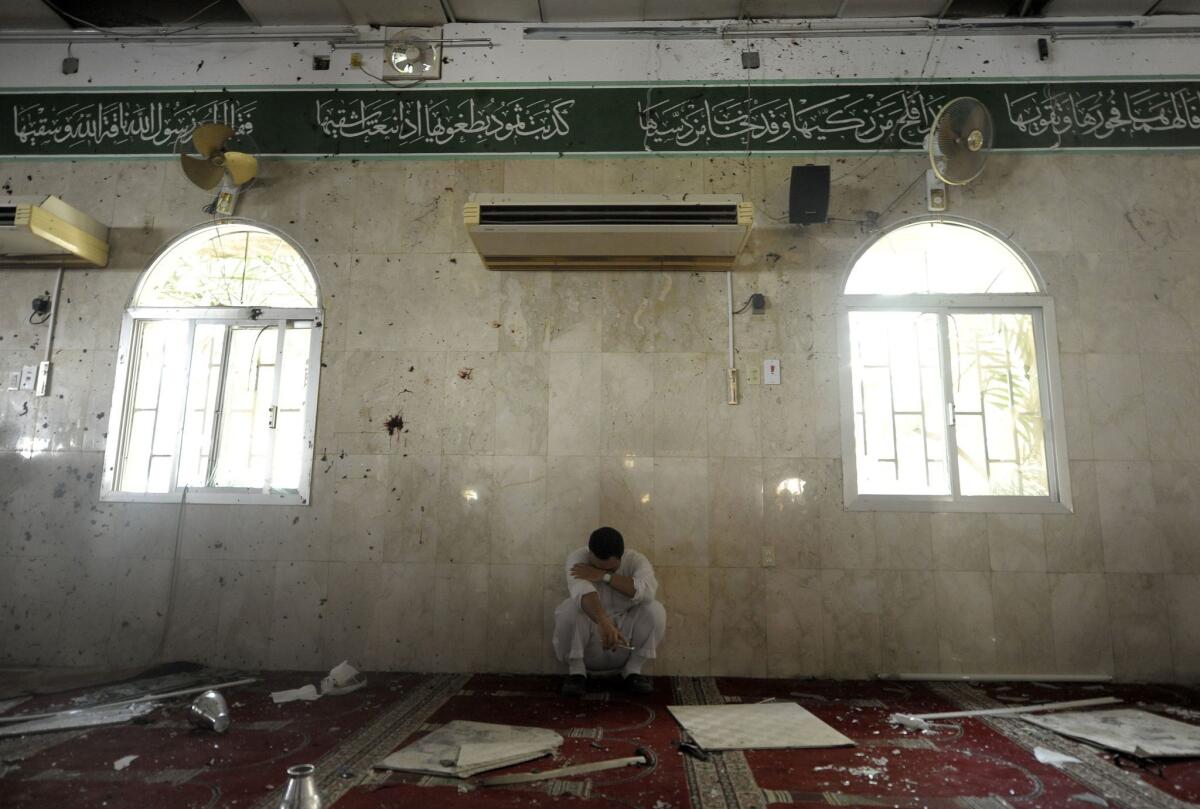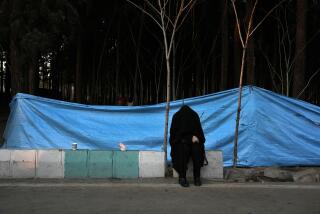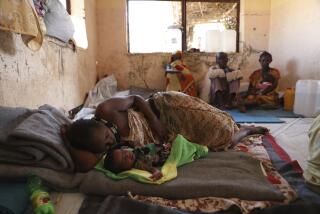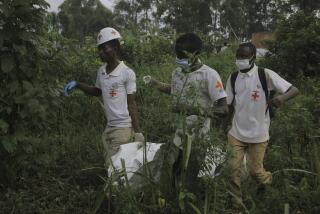Islamic State says itâs responsible for bombing at Saudi Shiite mosque

A man sits alone after a bombing at a Shiite mosque in the eastern Saudi town of Qudayh, near the regional center of Qatifi, on May 22.
Reporting from Cairo â Islamic State militants Friday claimed responsibility for a deadly bombing at a Shiite Muslim mosque in Saudi Arabia, marking the Sunni Muslim organizationâs first formal assertion that it had carried out an attack on the kingdomâs soil.
The groupâs involvement, if borne out, adds a volatile new element to sectarian tension roiling the region, where a fledgling Saudi leadership is already embroiled in an air war in neighboring Yemen.
The bomber struck a Shiite Muslim mosque in eastern Saudi Arabia during Friday prayers, reportedly killing at least 19 people and injuring dozens. Saudi authorities denounced the attack as an act of terrorism but made no immediate comment on the Islamic State claim.
In a sign of potential regional coordination among local franchises of Islamic State, the group also claimed responsibility for an explosion Friday outside a Shiite mosque in Yemenâs capital, Sana. No one was killed, but at least 18 people were injured, and some were reported in critical condition.
Islamic State has previously called on followers in Sunni-ruled Saudi Arabia to carry out attacks against Shiites, and Saudi authorities had blamed the group for previous bloodshed, including a deadly strike against Shiites late last year.
In Yemen, fighting and bombardment since the start of a March 26 offensive with distinct sectarian overtones that has resulted in at least 1,800 deaths and triggered a humanitarian crisis in what was already the Arab worldâs poorest country. The Saudi-led coalition is trying to restore to power Yemeni President Abdu Rabu Mansour Hadi, who early this year fled an advance by Houthi insurgents.
Until now, Saudi Arabia itself has been almost unscathed by the Yemen fighting, with little sign of domestic unease about a campaign widely criticized by human rights groups and questioned by military experts as lacking clear and achievable goals.
Saudi Arabiaâs Interior Ministry said the mosque attacker apparently detonated a concealed explosives belt among a crowd of worshipers in the eastern town of Qudayh, near the regional center of Qatif. Most of Saudi Arabiaâs Shiite minority, many of whom consider themselves targets of discrimination, live in the east.
The bombing, which coincided with a Shiite commemoration, was the first major episode of sectarian violence since the onset of the Yemen campaign. In November, eight people were killed in an attack that also came amid a Shiite religious observance.
In its claim of responsibility for the violence Friday, which was posted using accounts previously associated with the group, Islamic State identified the bomber by name and declared his target to have been a âsly gathering of infidelsâ and boasted that more than 200 of âthe pollutedâ were killed. Islamic State views Shiites as heretics.
Saudi officials did not provide casualty figures, but the Saudi-owned pan-Arab broadcaster Al Arabiya reported 19 deaths and some 100 injuries in the attack. Other accounts put the number of dead at more than 20.
The Yemen conflict has prompted a war of words between Sunni-ruled Saudi Arabia and Shiite Iran, the regionâs leading Muslim powers, but beyond some high-seas muscle-flexing by the Iranian navy, the Tehran government has made no overt military effort to intervene.
Saudi Arabia considers the Houthis an instrument of Iran, which denies arming the Shiite insurgents, and has imposed an air and sea embargo on Yemen meant to keep out Iranian weaponry.
The Saudi-led bombardment campaign has failed to dislodge the insurgents from Yemenâs capital, Sana, or from Aden, the countryâs main commercial hub. The rebels have also established strongholds elsewhere, and the fighting has created an opening for Yemenâs Al Qaeda franchise to make new territorial gains as well.
A five-day humanitarian truce in Yemen, which allowed the delivery of some aid supplies but was punctuated by ground fighting, ended Sunday. The bombardment resumed as soon as the cease-fire expired.
The United Nations said it would convene talks next week in Geneva to try to reach a political settlement. But Yemenâs government-in-exile is demanding that the Houthis pull back from captured territory before any negotiations can begin, while the rebels demand an immediate end to the coalition air offensive.
Thunderous airstrikes hit Sana again Friday, and fighting has also heated up on the Saudi-Yemen border, where the rebels and their allies, loyalists of deposed strongman Ali Abdullah Saleh, have staged raids on Saudi military posts along the frontier.
Times staff writer King reported from Cairo and special correspondent Hassan from Berlin. Special correspondent Zaid al-Alayaa in Sana contributed to this report.
Twitter: @laurakingLAT
More to Read
Sign up for Essential California
The most important California stories and recommendations in your inbox every morning.
You may occasionally receive promotional content from the Los Angeles Times.










